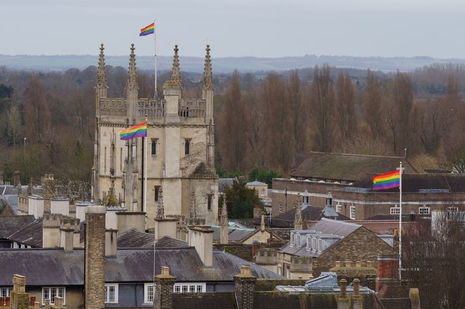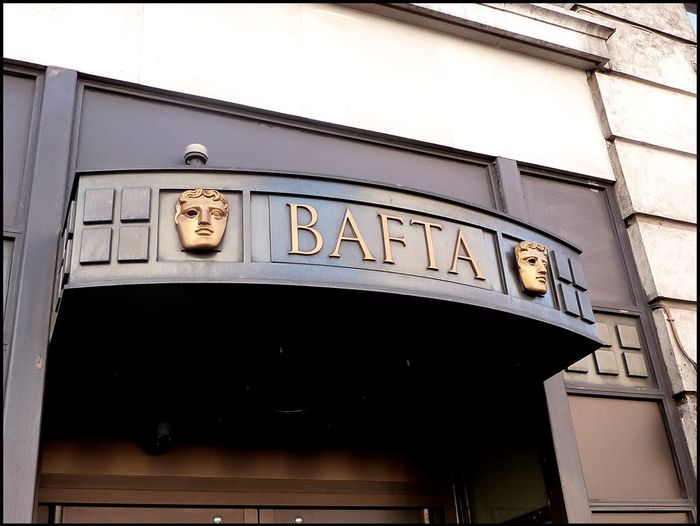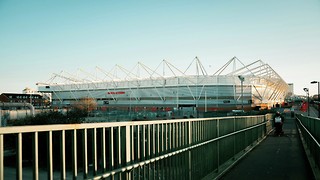Visibility matters: Clare’s refusal to fly the LGBT+ flag speaks nothing but intolerance
Jack Durand argues that the decision taken by some colleges to not fly the LGBT+ pride flag is a powerful statement of intolerance

Throughout Cambridge, Pride flags are flying in celebration of LGBT+ History Month, including at Old Schools for the first time this year. However, not all of Cambridge’s colleges have done the same. An email was released over the weekend by the Union of Clare Students (Clare College’s JCR), reporting the logic as set out to them by the Senior Tutor for refusing to display the flag.
The first explanation was that the Porters dislike using the flagpole. Seriously. Fortunately, this argument appears to have broken down in the meeting itself after students offered to raise the flag themselves. The distaste of college personnel for flagpoles is an absurd attempt to rationalise their failure to stand in solidarity not only with the LGBT+ community, but also with the overwhelming majority of University students, colleges and other bodies.
Moving on from pole-hating Porters, the issue of diversity was raised: that everyone flying the flag fails to reflect the pride movement and LGBT+ History Month as a celebration of the individual expression of one’s sexuality and gender identity. True, these are core tenets of the movement, but they provide no cause for refusing to raise the flag.
“...a flag flying from the top of every college exclaims that Cambridge is a place where diversity and individuality is celebrated by all...”
Oddly, the college is employing here the same logic upon which the design of the rainbow flag was based: across a diverse spectrum, be it of colour, gender or sexuality, members of the LGBT+ community stand together. The flag’s designer, Gilbert Baker, articulated this very point in his memoirs, saying of the ‘battle for equal rights’ that ‘this was our new revolution: a tribal, individualistic and collective vision. It deserved a new symbol.’ Being an individual is not the same as being alone, and it is this collective ethos, not any diversity of expression, that colleges are undermining in refusing to fly the flag.
Aside from any theoretical notion of what the Pride flag truly represents, it’s somewhat unclear how the college’s suggested compromise of rainbow bunting was more materially diverse than a rainbow flag. Sure, none of the other colleges, to my knowledge, have erected bunting for the month, but for good reason. The flag is not only a celebration of individuality, it is also designed to be highly visible. This was Baker’s vision: ‘Our job as gay people was to come out, to be visible, to live in the truth, as I say, to get out of the lie. A flag really fit that mission, because that’s a way of proclaiming your visibility or saying, “This is who I am!”’ Clare’s position seems to misunderstand what the flag actually means: a flag flying from the top of every college exclaims that Cambridge is a place where diversity and individuality is celebrated by all, or at least it should be.
Maybe it is the visibility of the flag as an expression of support and tolerance that is so troubling to the college’s senior staff? The crux of their argument was that the college doesn’t object to the Pride flag in particular, but flags in general. Clare, like many other colleges, typically flies only the college flag and, when required, the Union flag. In practical terms, as the college suggested by way of example, this likely amounts to little more than the routine rejection of national flags for patron saints’ days. This would be much more convincing if the ethos of the pride flag weren’t so radically different from that of, say, St George’s Cross.
The rainbow flag opposes exclusion rather than fostering it. It seeks to represent a global community based on acceptance and celebration of one another’s differences. National flags represent communities, yes, but they do so in oppositional terms, placing a nationalist dividing-line between ‘us’ and ‘them’ where the Pride flag does not. It’s curious that the college has fewer concerns over the Union flag and its links to Britain’s imperial past than over a symbol of unqualified inclusivity.
This dubious logic seems to speak less to an unwillingness to celebrate the LGBT+ community and its history than to a reluctance to make a visible and official political statement of support. Concerns over the official nature of flying a Pride flag from a college’s main flagpole have arisen in the past. In 2018, St John’s raised the flag over their boathouse and Queens’ draped it over the Mathematical Bridge, while Trinity and Trinity Hall displayed it in their JCRs. Clare opted to use their back gate. Similarly, this year, many will have noted Trinity’s use of a temporary short-pole on their front lawn, something the Clare Student Union suggested as a compromise, but to no avail.
If these colleges are anxious not to take a political stance, they have failed miserably. With nearly all colleges, many departments and an increasing number of University sites raising the pride flag, those that refuse to do so are making an overt statement of intolerance. They are deviating from a norm backed by enormous student support, and must justify their position.
As we have seen, their reasoning is, to be generous, weak. If a college is failing to represent the interests and beliefs of both the University and its student body, it cannot claim any legitimacy.
 News / Cambridge academics sign open letter criticising research funding changes22 February 2026
News / Cambridge academics sign open letter criticising research funding changes22 February 2026 News / Student and union protesters hold ‘Trans Liberation Solidarity Rally’ 24 February 2026
News / Student and union protesters hold ‘Trans Liberation Solidarity Rally’ 24 February 2026 News / Union speakers condemn ‘hateful’ Katie Hopkins speech14 February 2026
News / Union speakers condemn ‘hateful’ Katie Hopkins speech14 February 2026 Features / Beyond the porters’ lodge: is life better outside college?24 February 2026
Features / Beyond the porters’ lodge: is life better outside college?24 February 2026 Theatre / Footlights Spring Revue? Don’t Mind if I Do!25 February 2026
Theatre / Footlights Spring Revue? Don’t Mind if I Do!25 February 2026










